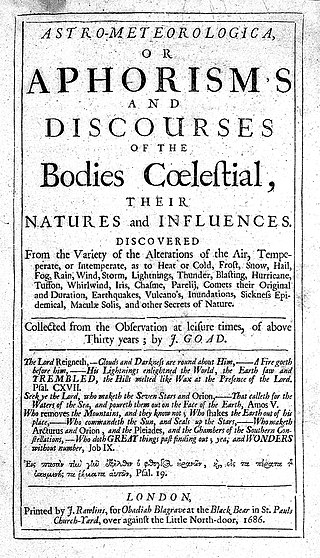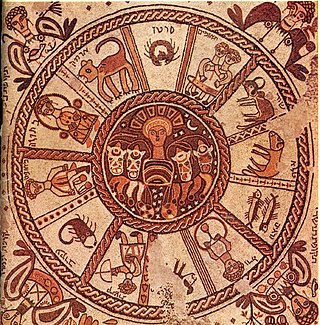
Astrology is a range of divinatory practices, recognized as pseudoscientific since the 18th century, that claim to discern information about human affairs and terrestrial events by studying the apparent positions of celestial objects. Different cultures have employed forms of astrology since at least the 2nd millennium BCE, these practices having originated in calendrical systems used to predict seasonal shifts and to interpret celestial cycles as signs of divine communications. Most, if not all, cultures have attached importance to what they observed in the sky, and some—such as the Hindus, Chinese, and the Maya—developed elaborate systems for predicting terrestrial events from celestial observations. Western astrology, one of the oldest astrological systems still in use, can trace its roots to 19th–17th century BCE Mesopotamia, from where it spread to Ancient Greece, Rome, the Islamic world, and eventually Central and Western Europe. Contemporary Western astrology is often associated with systems of horoscopes that purport to explain aspects of a person's personality and predict significant events in their lives based on the positions of celestial objects; the majority of professional astrologers rely on such systems.

Horology is the study of the measurement of time. Clocks, watches, clockwork, sundials, hourglasses, clepsydras, timers, time recorders, marine chronometers, and atomic clocks are all examples of instruments used to measure time. In current usage, horology refers mainly to the study of mechanical time-keeping devices, while chronometry more broadly includes electronic devices that have largely supplanted mechanical clocks for the best accuracy and precision in time-keeping.
The Kraków School of Mathematics was a subgroup of the Polish School of Mathematics represented by mathematicians from the Kraków universities—Jagiellonian University, and the AGH University of Science and Technology–active during the interwar period (1918–1939). Their areas of study were primarily classical analysis, differential equations, and analytic functions.

Astrometeorology or meteorological astrology is a pseudoscience that attempts to forecast the weather using astrology. It is the belief that the position and motion of celestial objects can be used to predict both seasonal climate and weather. Throughout most of its history astrometeorology was considered a scholarly tradition and was common in academic circles, often in close relation with astronomy, alchemy, meteorology, medicine, and other types of astrology.

Astrology has been a topic of debate among Jews for over 2000 years. While not a Jewish practice or teaching as such, astrology made its way into Jewish thought, as can be seen in the many references to it in the Talmud. Astrological statements became accepted and worthy of debate and discussion by Torah scholars. Opinions varied: some rabbis rejected the validity of astrology; others accepted its validity but forbid practicing it; still others thought its practice to be meaningful and permitted. In modern times, as science has rejected the validity of astrology, many Jewish thinkers have similarly rejected it; though some continue to defend the pro-astrology views that were common among pre-modern Jews.

Aries (♈︎) is the first astrological sign in the zodiac, spanning the first 30 degrees of celestial longitude, and originates from the Aries constellation. Under the tropical zodiac, the Sun transits this sign from approximately March 21 to April 19 each year. This time-duration is exactly the first month of the Solar Hijri calendar.

Cancer (♋︎) is the fourth astrological sign in the zodiac, originating from the constellation of Cancer. It spans from 90° to 120° celestial longitude. Under the tropical zodiac, the Sun transits this area between approximately June 22 and July 22.

Pisces (♓︎) is the twelfth and final astrological sign in the zodiac. It is a negative, mutable sign. It spans 330° to 360° of celestial longitude. Under the tropical zodiac, the sun transits this area between February 19 and March 20. In classical interpretations, the symbol of the fish is derived from the ichthyocentaurs, who aided Aphrodite when she was born from the sea.

Scorpio (♏︎) is the eighth astrological sign in the zodiac, originating from the constellation of Scorpius. It spans 210–240° ecliptic longitude. Under the tropical zodiac, the Sun transits this sign on average from October 23 to November 21. Depending on which zodiac system one uses, someone born under the influence of Scorpio may be called a Scorpio or a Scorpionic.

Taurus (♉︎) is the second astrological sign in the modern zodiac. It spans from 30° to 60° of the zodiac. This sign belongs to the Earth element or triplicity, as well as a fixed modality, quality, or quadruplicity. It is a Venus-ruled sign, the Moon is in its exaltation here at exactly 3°. The Sun transits this sign from approximately April 20 until May 20 in western astrology.

Sagittarius (♐︎) is the ninth astrological sign, which is associated with the constellation Sagittarius and spans 240–270th degrees of the zodiac. Under the tropical zodiac, the sun transits this sign between approximately November 22 and December 21. Greek mythology associates Sagittarius with the centaur Chiron, who mentored Achilles, a Greek hero of the Trojan War, in archery.

It is unclear whether a form of Early Irish astrology existed prior to contact with Western astrology, as the earliest Irish language sources are simply translations from standard Western sources. Historian Peter Berresford Ellis argues that although there is evidence of the development of Irish astrology from the 7th Century AD onwards, anything earlier is left to conjecture based on continental Celtic artifacts like the Coligny calendar and reconstructions from historical documents.

Gemini (♊︎) is the third astrological sign in the zodiac. Under the tropical zodiac, the sun transits this sign between about May 21 to June 21. Gemini is represented by the twins, Castor and Pollux, known as the Dioscuri in Greek mythology. Its known as a positive, mutable sign.

Capricorn(♑︎) is the tenth astrological sign in the zodiac out of twelve total zodiac signs, originating from the constellation of Capricornus, the goat. It spans the 270–300th degree of the zodiac, corresponding to celestial longitude. Under the tropical zodiac, the sun transits this area from around December 22 to January 24. In astrology, Capricorn is an earth sign along with Virgo and Taurus, a negative sign, and one of the four cardinal signs. Capricorn is ruled by the planet Saturn along with Aquarius.

Aquarius (♒︎) is the eleventh astrological sign in the zodiac, originating from the constellation Aquarius. Under the tropical zodiac, the Sun is in the Aquarius sign between about January 20 and February 18.
The Kraków School of Mathematics and Astrology was an influential mid-to-late-15th-century group of mathematicians and astrologers at the University of Kraków.
Jagiellonian University Medical College is the oldest medical school in Poland. The Jagiellonian University's Faculties of Medicine and Pharmacy are acclaimed as one of the largest medical academies in Poland. The school was established by King Casimir III of Poland in 1364.
Michael Falkener, Michał z Wrocławia, Michał Wrocławczyk, Michael de Wratislava, Michael Vratislaviensis was a Silesian Scholastic philosopher, astronomer, astrologer, mathematician, theologian, philologist, and professor of the Kraków Academy.
Mikołaj z Szadka Prokopowicz (1489–1564) was a Polish academic.













